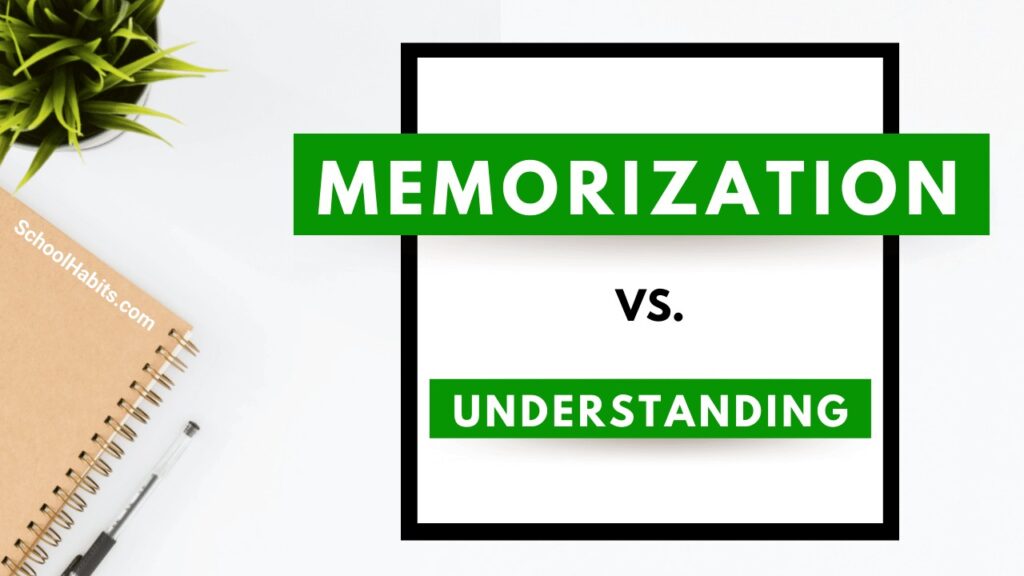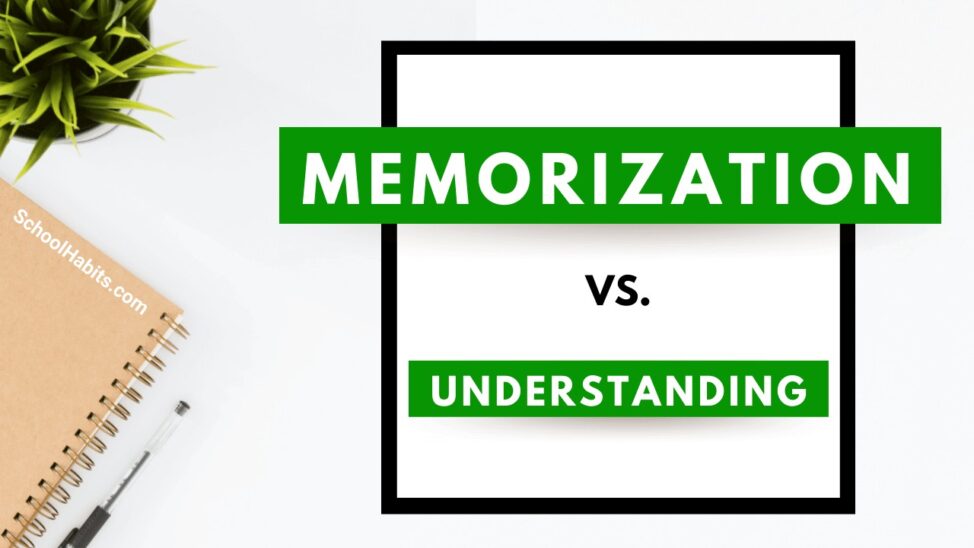By Katie Azevedo. M.Ed.

When it comes to studying, there is a major difference between memorization and understanding. I’m going to explain the differences and when to use each method, but let’s start with this simple but important distinction:
- Memorization is temporary and limited to basic words and facts.
- Understanding is long-term and unlimited.
What’s the difference between memorization and understanding?
Memorization and understanding are related because they are both involved in knowledge acquisition, but they are different in their effectiveness, usefulness and shelf-life.
| MEMORIZATION | UNDERSTANDING |
| Short term | Long-term or permanent |
| Stored in working memory | Stored in long-term memory |
| Unconnected to real learning | Foundational to real learning |
| Information is available for quick recall | Information is available for real-world application |
| Limited to words and basic sentences | Extends to processes, systems, and concepts (not just basic vocabulary) |
| Literal interpretation only | Deeper, broader, figurative interpretation |
| Does not lead to insights, creativity, or new ways of thinking about the information | Leads to making connections, having insights, synthesizing the information |
When to use memorization
In the learning process, understanding material should always come before memorizing it. Unfortunately, that’s not how many students approach studying.
There’s a time and place to rely on basic memorization. Memorization can be handy when we’ll be recalling the information within the next hour, and when we know we won’t ever need to know it again. Examples include playing a memory-based card game (ahhh where was the card with the teapot!?), learning someone’s name in a conversation (sorry, Susan – I won’t remember your name when we’re done here!).
Memorization strategies such as mnemonic devices, visualization, and association are best used after we fully understand something. For example, we might memorize the silly sentence King Phillip Came Over For Good Spaghetti as a way to remember the classifications for biology (kingdom, phylum, class, order, family, genus, species – woah, look at me go). But memorizing this sentence does not mean we understand the classification system.
A few lines back, I wrote that we should understand the material before we memorize it. In the case of the classification system example, we should fully learn about the topic first (what it is, why do we use it, how does it work, etc.), and then come up with a mnemonic device for remembering it.
When NOT to use memorization
In most cases, we should rely on actually learning the content instead of trying to memorize it. We should never rely on memorization in the following scenarios. When we:
- care about what we’re learning and actually want to learn it
- need to use the information to understand something else
- need to apply the information in real-life scenarios or on a test
- will need to recall the information in more than 24 hours
- the whole point is to learn it, not just to pass a test
Strategies for memorization vs. understanding
We use different study strategies for memorizing and understanding material. I’ve listed some below.
Memorization strategies
- Rote repetition
- Visualization
- Mnemonic devices
- Association
- Stories
Legitimate study strategies that lead to real understanding
- Active recall
- Interleaved practice
- Spaced repetition
- Studying the same material 3 different ways
- Study in both directions
The bottom line is that in most cases, taking the time to fully understand the material is the best option. Learn it forwards, backward, inside-out, and across contexts. And then after that, you can use one of the memorization strategies listed above as a trigger to help you recall the information when you need it.

